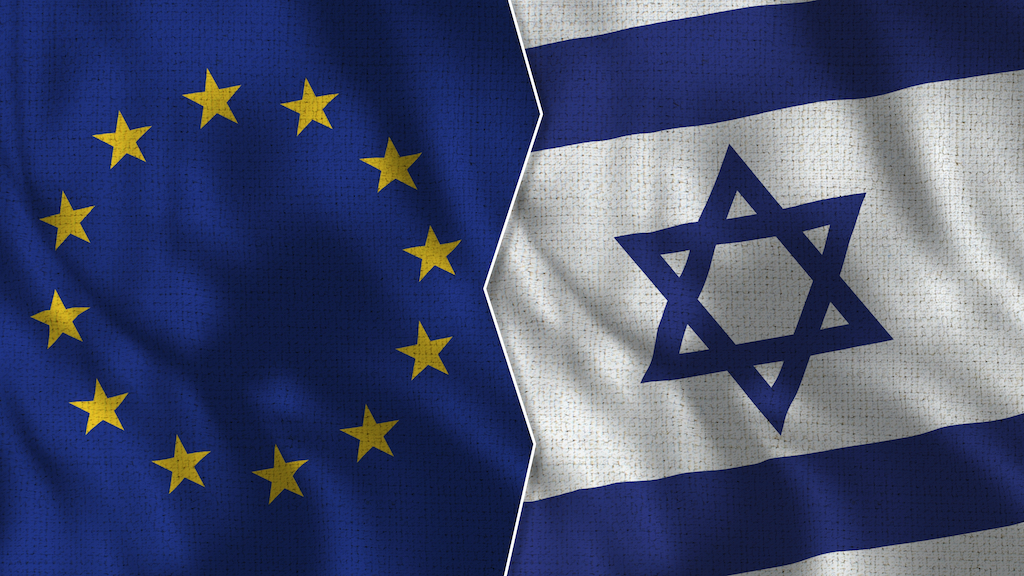Why Europe Remains Hostile to Israel
Rafael Bardaji, executive director of the Friends of Israel and Spain’s former national security advisor, spoke to participants in a 15 February Middle East Forum webinar about the persistent “clash of interests … between the European Union (EU) and the Israeli government” likely to endure for the foreseeable future.
““clash of interests … between European Union (EU) and Israeli government” likely to endure for the foreseeable future”
According to Bardaji, three points of friction between the EU and Israel are prominent this year. The first is the International Criminal Court (ICC) decision by its former prosecutor, Gambian lawyer Fatou Bensouda, to “accept the Palestinians as a national state … able to ask for an investigation, prosecution and indictment of a non-state- member of the ICC,” namely Israel. “The Europeans are very well attached, by heart, to the ICC despite all violations of international law regarding this decision.” Bardaji suggested that the most effective way to counter the ICC’s illegal action is to approach those European powers opposed to Bensouda’s decision and persuade them to defund the ICC.
The second point of friction concerns Iran. Despite Tehran’s violations of the Joint Comprehensive Plan of Action (JCPOA), the EU is eager to ‘keep it afloat’ and press the U.S. to lift its sanctions imposed under Trump in order to resume their own trade with Tehran. The Biden administration’s clear desire to reach out to Iran for a new agreement will encourage the Europeans to ‘offer even more concessions to Iran’ to hasten a deal.
The third point of conflict is European eagerness to “pull the Palestinians back into the centre stage” of the Middle East peace process, despite the fact that the Palestinians’ longstanding belief that “without them, nothing can be done in the region” has been proven wrong. The Abraham Accords established as a result of Trump’s ‘thinking out of the box,’ bore results, but the Biden administration has expressed “doubts about nurturing new countries” to join the accords. That stance will cause the Europeans to stiffen their own resistance.
Bardaji discussed several factors giving rise to these and other clashes of interests between the EU and Israel. Culturally, there is a clash of values between a “pacifist continent … [where] nobody wants to kill or die for anything,” and Israel, “defined as a Jewish state for the Jewish people” committed to defending its borders and people. Europeans “reject defence as a tool of the state” and perceive Israel as a framework foreign to its embrace of a multicultural European identity. “We [Europeans] despise ourselves, and we embrace everyone else coming from every country in the world, even if they don’t want to integrate, like Muslim radicals.”
“The average European, ascribing to a ‘post-modern world,’ cannot comprehend a people defined by a religion other than Islam surviving in the hostile environs of the Middle East”
Furthermore, “a state that is defined by religious belief – the state of the Jewish people” is seen as an ‘anachronism’ given the “radical secularisation of Europe.” The average European, ascribing to a ‘post-modern world,’ cannot comprehend a people defined by a religion other than Islam surviving in the hostile environs of the Middle East. Further contributing to Europe’s hostility towards Israel is that it has evolved from its beginnings as a socialist experiment, which appealed to the left in Europe, to become the ‘pro-capitalist … start-up nation,’ where the European left ‘cannot see itself … represented.’
The irony is that the Europeans, in their embrace of secular values while exhibiting hostility toward the Jewish state, see no contradiction between these sentiments and their tolerance of Muslim migrants who ascribe to “a religion that is hostile to our values and our way of life,” and who are becoming more radicalised. Indeed, the ‘new left’ in Europe has established a ‘symbiotic relationship’ with Muslims that is “making [the continent] more fertile for anti-Semitism … [and] anti- Israeli criticism.”
Bardaji questioned whether the emergence of the new right in Europe is an antidote to the hostility towards Israel because, excluding what Daniel Pipes calls ‘civilizational parties’, there are elements of anti- Semitism there as well. With the far left and far-right “emerging as the only two poles determining the political dynamics in the EU and the European continent,” Bardaji is pessimistic about the future of EU-Israel relations.
This article was originally published by The Middle East Forum on 14 March 2021. www.meforum.org





